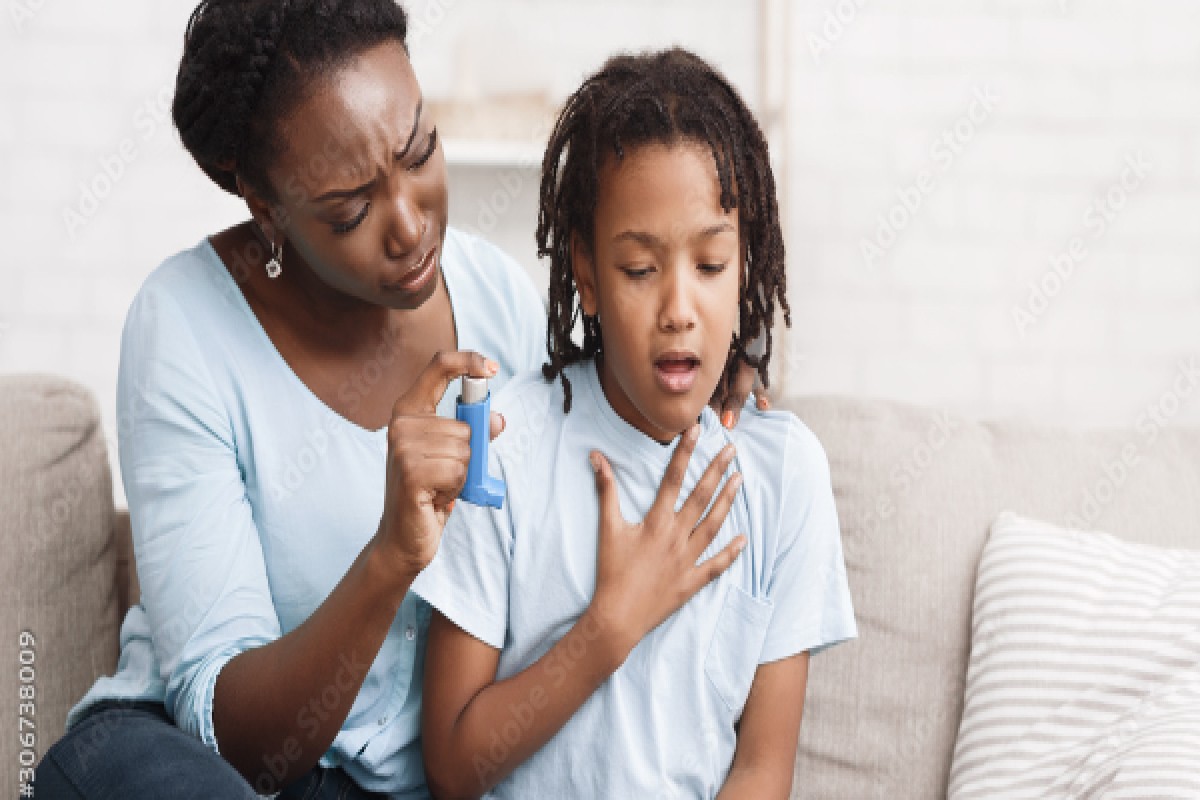
No items in Cart!
Add something to make me happy :)

ASTHMA
Winter is just the right time to go out and enjoy the cold air. But this chill also brings a host of problems with it. The cold, dry air coupled with the high pollution and smog levels can trigger respiratory allergies, Asthma is the most common of them all.
ASTHMA
Winter is just the right time to go out and enjoy the cold air. But this chill also brings a host of problems with it.
The cold, dry air coupled with the high pollution and smog levels can trigger respiratory allergies, Asthma is the most common of them all.
- Asthma is a chronic respiratory disorder, often arising from allergies.
- It is characterized by sudden recurring attacks of breathlessness,
chest constriction, wheezing, and coughing.
CAUSES OF ASTHMA
Often hereditary, Asthma is can be categorized as:
- ALLERGIC (Extrinsic): most common type, usually appears
in childhood, might improve during early adulthood and recur
later in the 30s or 40s
- NON-ALLERGIC (Intrinsic): Usually develops in the 30s, often
following a respiratory tract infection.
Eczema, Known Allergies, Allergic Rhinitis or Sinusitis, A Family History of Asthma – these are the major predictors of asthma.
TRIGGERS OF AN ASTHMA ATTACK:
Asthma can be triggered by either specific allergens or non-specific irritants.
ALLERGENS: Substances that are foreign to the body and can cause an allergic reaction in certain individuals.
Common allergens:
Animal dander, dust, mites, cockroach allergies, chemicals, foods
such as eggs, peanuts, etc, additives e.g. sulfites, and many more.
Non specific irritants include viral respiratory infections, drugs such as aspirin, beta-blockers, etc., tobacco smoke, fumes, odors of paint, detergents, perfumes, etc.
MOST COMMON PRECIPITATING FACTORS:
- Humidity and sudden temperature changes esp. inhaling cold air.
- Exercise esp. in cold, dry conditions.
- Stress, anxiety, or very strong emotions
SYMPTOMS OF ASTHMA
- Symptoms vary from person to person and in any individual from time to time.
- The common symptoms are – Wheezing respiration, Cough worse at night, tightness of chest, and shortness of breath.
- A chest x-ray of an asthma patient is usually normal.
WHAT HAPPENS DURING AN ASTHMA ATTACK
Asthma causes narrowing of the breathing airways which interferes with the normal movement of the air in and out of the lungs. It does not affect the lung tissue as such.
TREATMENT
- During acute attack emergency measures are required such as an inhaled medication through nebulizers.
- Patients might require oxygen inhalation.
- Homoeopathy has a wide range of medicines that are effective in controlling asthma.
- Homoeopathic medicines build one’s immunity against allergens and thus help in gradually reducing the frequency and intensity
of the attacks.
HOW TO PREVENT ASTHMA ATTACKS
- Limit your exposure to known allergens
- Increase your immunity with a balanced diet and avoiding food with preservatives and additives.
- Adopt a healthy lifestyle, regular yoga, and breathing exercises.
- Stay stress-free and calm.
- Have a vitamin C rich diet which helps build immunity.

















